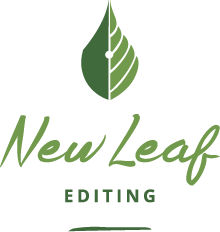High quality, professional editing services for writers of fiction (novels and short stories) and literary non-fiction (memoir and family histories)
Writing Resources
“Know your literary tradition, savor it, steal from it, but when you sit down to write, forget about worshiping greatness and fetishizing masterpieces.”
—Allegra Goodman
Glossary
Cadence: the rhythm of a sentence or of sentences together; the flow of language
Cliche: a trite, stereotyped expression or idea that has lost originality through overuse
Diction: word choice
Redundancy: unnecessary repetition of a word, phrase, or idea
Syntax: The way words are arranged in a sentence; sentence structure
Here’s a list of some of my favorite books on writing.
Bird by Bird, by Anne Lamott. Warm and witty essays about the joys and trials of the writing life.
Wired for Story, by Lisa Cron. “The writer’s guide to using brain science to hook readers from the very first sentence.” I recommend reading this book before you start writing your novel, because Lisa Cron’s advice on how to focus and structure your story from the get-go is invaluable. But it’s never too late—I read her book after I’d written most of my own first book, and it still had a positive impact on the outcome.
Writer’s Digest Books puts out a series on the craft of writing called “Elements of Fiction Writing.” Each book is dedicated to one aspect of the nuts and bolts of writing, such as scene and structure, description, and plot. One of my favorites in the series is Orson Scott Card’s Characters & Viewpoint, which “explains in depth the techniques of inventing, developing and presenting characters.” Card (author of the classic science fiction novel Ender’s Game) has deep insight into the nuances of point of view.
Self-Editing for Fiction Writers—How to Edit Yourself into Print, by Renni Browne and Dave King. “Two professional editors share their expertise and proven techniques” for writing solid fiction. Lots of good, practical advice. I have referred to this book time and again over the years.
The Handbook of Good English, by Edward D. Johnson. “A comprehensive, easy-to-use guide to modern grammar, punctuation, usage, and style.” Handy if you want a reference in book form so you can go a little deeper into these subjects.
The Writer Magazine has well-written, in-depth articles about all aspects of writing and publishing.
Here’s a list of some useful websites for writers.
Sponsored by Science Fiction & Fantasy Writers of America, “Writer Beware” is “concerned not just with issues that affect professional authors, but with the problems and pitfalls that face aspiring writers. For more than twenty years, the mission of Writer Beware® has been to track, expose, and raise awareness of questionable, illicit, and/or nonstandard practices in and around the publishing industry.” A fount of information about how to find reputable agents, publishers, and editors. writerbeware.org
Author’s Magazine. Teamed with the Pacific Northwest Writer’s Association, this online magazine is dedicated to writing and publishing and the creative process in general. authormagazine.org.
Writers Write. Information on writing and publishing, including lists of markets for writers and articles on the craft of writing. writerswrite.com.
NaNoWriMo Blog. NaNoWriMo stands for National Novel Writing Month, a “nonprofit organization that provides tools, structure, community, and encouragement to help people find their voices, achieve creative goals, and build new worlds — on and off the page.” nanowrimo.org.
Writers Helping Writers®. Their mission is “to offer help and support, empowering writers everywhere…[with] one-of-a-kind tools and resources for writers, editors and teachers.” writershelpingwriters.net.
Grammarly.com. “Find answers to all your writing conundrums with our simple guide to English grammar rules.” grammarly.com.
Elizabeth Spann Craig’s Writer’s Knowledge Base. A search engine for writers, with 40,000 articles on writing. hiveword.com/writers-search-engine
How To Find a Literary Agent: The Ultimate Guide. Tiffany Hawk’s site nicely balances clear, detailed advice with valuable resources on how to find an agent. tiffanyhawk.com.
Copyright.gov. Find out about copyright laws and register your copyright. copyright.gov.

